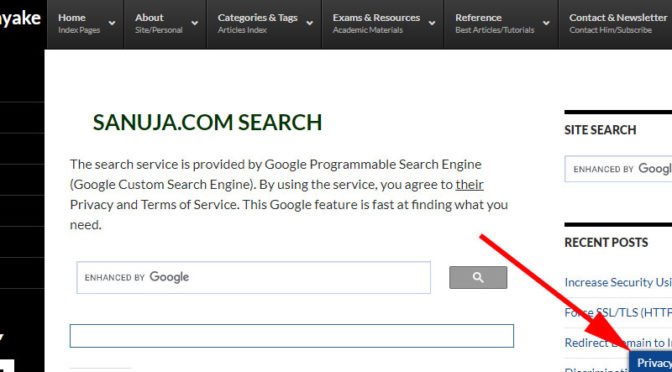As of 2020, the WordPress (WP) Content Management System (CMS) has a very large developer community. The popularity of the platform can be attributed to two major factors; a wide range of plugins and beautifully designed yet highly functional themes. Once the site owner (or designer, developer) choose a theme, if the entire website is on WordPress CMS, the theme will be applied across all posts and pages.
Tag Archives: css/html
Google Custom Search Refinements
Google is a very popular search engine. One of the driving forces behind the popularity is Google Inc’s generous offers such as free site-based search. The Google Custom Search Engine (CSE) is a such free Webmaster tool. It allows the site owners to integrate the powerful Google search system into their website. I already discussed how to replace the default WordPress site search with your CSE. In this article, I will introduce you to creating content filters.
Fixing overlapping content
We can use CSS codes to arrange containers of information in variety of ways. The vertical stacking order called z-index is used to denote which container will go on top of the other. Problems occurs when you write CSS containers without the consideration for the z-index value or use scripts from several different sources with undesirable stacking order. You can fix these problems in several ways.
Integrating Google Custom Search
The Google Custom Search Engine (CSE) is a server side program written in C++ for web developers to improve their individual search results. It comes in few different flavors as advanced as Google Enterprise Search servers to Google-hosted search pages. I will go into the deep end with Google Custom Search for personal websites, a free service provided by Google Inc (THANK YOU Google).
Introduction to Drupal modules
Drupal is the second most popular Content Management System (CMS) with the best reputation for security. It is behind WordPress CMS because for most non-programmers/geeks, the administration of Drupal can be a nightmare. Even for someone who is not new to web programming, the learning curve can be very high. But there are good reasons why Drupal can be complicated. It is the most flexible CMS that has a very good adaptability. You can built a simple blog and over time you can turn that into a highly complex cooperate website. In order to do that, you will have to go utilize Modules.



